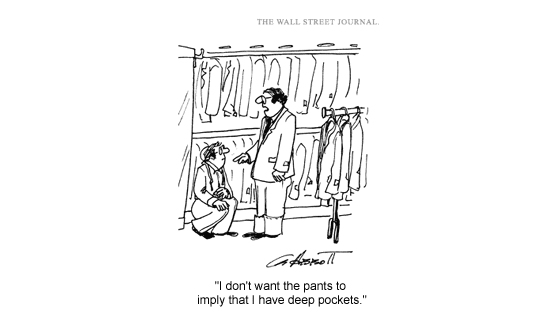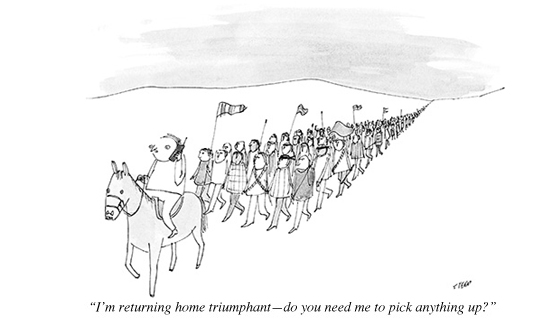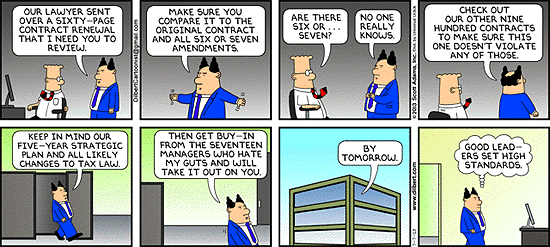
Here's my Top 10 links from around the Internet at 10:00 am today.
Bernard is back tomorrow with his version.
As always, we welcome your additions in the comments below or via email to bernard.hickey@interest.co.nz.
See all previous Top 10s here.

1. BRICs crumbling
Investors - or more accurately, investment analysts - love acronyms.
They chase decade-long fads, and so it should not be surprising that the fascination with the BRICs should be coming to an end.
I wonder when an investment acronym will include New Zealand?
(The latest ones are MIST – Mexico, Indonesia, South Korea and Turkey – and CIVETS – Colombia, Indonesia, Vietnam, Egypt, Turkey and South Africa.)
The Globe & Mail has a review:
From 2003 to 2012, the MSCI Emerging Markets index rose nearly 17 per cent a year on average, in U.S. dollar terms. But investments in emerging markets in the coming decade are “unlikely to deliver anything close” to the kinds of returns they did in the last one, Dominic Wilson, an economist at Goldman Sachs Group Inc., wrote in a note to clients last month. “To paraphrase the old expression, these are not your older brother’s emerging markets.”
Mr. Wilson’s opinion carries particular weight: Together with colleagues, he predicted in a report in 2003 that the BRIC nations – Brazil, Russia, India and China – would become an increasingly important driver of the world economy. Their contribution to global growth will remain high, he noted last month, but the real spike is likely “mostly over.”
Others echo that assessment, arguing that an investing era has ended. “Every decade there’s some theme that captures the imagination of people,” said Ruchir Sharma, head of emerging markets at Morgan Stanley Investment Management in New York. In the 1970s, it was gold; in the 1980s, it was Japan; in the 1990s, it was technology; and in the 2000s, it was the BRIC nations, he said.
“Now what we’re seeing is this is beginning to change,” said Mr. Sharma, the author of Breakout Nations, a recent book on the topic. “All the emerging markets booming together is last decade’s story.”

2. Low interest rates justify silly loans
The growth of China's shadow banking industry to its now-enormous position worries many. Like our own 'finance company industry', it is criticised by 'normal banks' as unstable, and regulators echo their views. But maybe they are wrong (again?). Joe Zhang writing on Bloomberg has a useful counterpoint:
The government and the media are scapegoating the wrong culprit. Shadow banking has flourished in China for one simple reason: financial repression. By keeping interest rates artificially low, authorities have forced savers to search for more lucrative financial products. By favoring banks -- which, in turn, favor state-owned or well-connected private-sector companies with loans -- they have forced small enterprises to seek out people like me and Wang.
Meanwhile, projects that might look sketchy at 9 percent interest rates suddenly look feasible at 6 percent. Under such conditions, traditional banks have steadily lowered their lending standards -- from prime loans to subprime and then to simply silly loans.
Sound familiar? That’s how the 2008 financial crisis began, too. Leaders are right to worry about the possibility of a banking crisis in China. But instead of focusing their ire on shadow bankers, they should raise benchmark interest rates in order to reduce the amount of credit flowing to dodgy loans through the formal banking sector. The threat to China’s financial system is right there -- out in the open -- not lurking in the shadows.

3. Hedge funds are for suckers
That's the headline in the latest issue of BusinessWeek. The 'smart money' can't beat the market - in fact, the markets beat hedge funds hands down. But Adrian Orr and his team at NZSF beat them both by a very handy margin. Investment benchmarks are not being set in New York, but Wellington!
According to a report by Goldman Sachs released in May, hedge fund performance lagged the Standard & Poor’s 500-stock index by approximately 10 percentage points this year, although most fund managers still charged enormous fees in exchange for access to their brilliance. As of the end of June, hedge funds had gained just 1.4 percent for 2013 and have fallen behind the MSCI All Country World Index for five of the past seven years, according to data compiled by Bloomberg. This comes as the SEC passed a rule that will allow hedge funds to advertise to the public for the first time in 80 years, prompting a flurry of joke marketing slogans to appear on Twitter, such as “Creating alpha since, well, mostly never” (Barry Ritholtz) and “Leave The Frontrunning To Us!” (@IvanTheK).

4. Today's raw market data ...
A quick new-week update:
| as at 11:10am |
Today 9:00 am |
Friday |
Four weeks ago |
One year ago |
| NZ$1 = US$ | 0.7769 | 0.7847 | 0.8059 | 0.7905 |
| NZ$1 = AU$ | 0.8598 | 0.8556 | 0.8417 | 0.7793 |
| TWI | 73.99 | 74.35 | 74.54 | 72.07 |
| Gold, US$/oz | 1,280 | 1,285 | 1,385 | 1,596 |
| Dow | 15,431 | 15,431 | 15,198 | 12,780 |
| Copper, US$/tonne | 6,923 | 6,996 | 7,021 | 7,690 |
| Volatility Index | 13.84 | 14.01 | 16.80 | 16.74 |

5. Don't do regulators job
In the past few weeks we have had a clear lesson about the limitations of monetary policy. Berkeley professor Barry Eichengreen makes some interesting points on Project Syndicate:
A final lesson is that monetary policy is a blunt instrument for addressing asset-market problems. In the absence of inflation, it was mainly warnings about new asset bubbles that pressured the Fed to curtail its purchases of long-term securities. Similarly, worries about property prices drove the PBOC’s abrupt change of course.
Bubbles should be a concern, but the June 19 episode in the US and China reminds us that addressing them is first and foremost the responsibility of regulators. Central bankers cannot afford to ignore them, but they should be wary of reacting too soon. In the meantime, they have bigger fish to fry.

6. The end of the [land]line
The superstorm in New Jersey at the end of 2012 may be an important tech turning point. The local phone company has refused to restore copper wires for landlines in some communities, insisting they will only supply mobile service from here on. And the are getting support from other big telecom suppliers. Maybe the restoration of Christchurch's copper network will be one of the last? More at Slate.com:
In Washington, the Federal Communications Commission is looking at an application from the country’s largest landline phone company, AT&T Inc. AT&T isn’t dealing with storm damage, so it has the leisure of taking a longer view. It wants to explore what a future without phone lines will look like by starting trials in yet-to-be-decided areas.
“We need kind of a process where we can figure out what we don’t know,” says Bob Quinn, one of AT&T’s top lobbyists in Washington. “The trouble is not going to be identifying the issues everybody can see. It’s going to be finding the unexpected issues that you have to conquer.”
“There are all kinds of state and federal rights around your phone bill … which don’t apply to these competitive alternatives,” Feld says.
The FCC put together a formal task force on the issue in December, after AT&T put in its request, and has asked the company for more details.
Sean Lev, the FCC’s general counsel, said in a blog post that “we should do everything we can to speed the way while protecting consumers, competition, and public safety.” But he also points out that most phone companies aren’t set to retire their landline equipment immediately. The equipment has been bought and paid for, and there’s no real incentive to shut down a working network. He thinks phone companies will continue to use landlines for five to 10 years, suggesting that regulators have some time to figure out how to tackle the issue.
AT&T would like to have all its landline phone equipment turned off by 2020. Verizon’s Maguire envisions a gradual phase-out, starting right now.

7. Making sense of nearly everything
Physicist Mark Mills says the age of all-seeing, all-knowing information analytics is nearly upon us.
Big data may not so much change “the way we make sense of the world” as amplify our ability to make sense of nearly everything in it - from terrorism to disease to restaurant preferences to subatomic particles.
He sees important, even troublesome, public-policy and social implications. More in City Journal:
Soon big-data analytics will cross a Rubicon: we won’t have to guess or approximate what’s going on with many activities, we will know. Until now, given the scale and complexities of commerce, industry, society, and life, you couldn’t measure everything; you approximated by statistical sampling and estimation. That era is almost over. We won’t have to, for example, estimate how many cars are on a road, we will count each and every one in real time as well as hundreds of related facts about each car. Ditto soon for such things as your heartbeat or blood glucose, and much more.

8. What is bank capital?
William Alden at Dealbook has written a nice primer on bank capital, and why bankers don't like holding very much. They prefer to play the leverage game - which is interestingly something they won't tolerate with the clients they lend to. Double standard?
Think about capital this way: It designates the percentage of assets that a bank can stand to lose without becoming insolvent.
If a bank’s assets decline in value, it has to account for that by adjusting the source of financing that it used. Liabilities like debt and deposits can’t be reduced, as they represent money that the bank has promised to pay to bondholders or depositors.
But what’s useful about capital is that it can be reduced, or written down. That’s the whole point. Shareholders, who contribute to capital, agree to absorb losses if the bank falls on hard times. So, rather than a “rainy day fund,” capital is a measure of a bank’s potential to absorb losses.

9. The limits to panic
We often hear how the world as we know it will end, usually through ecological collapse. Indeed, more than 40 years after the Club of Rome released the mother of all apocalyptic forecasts, The Limits to Growth, its basic ideas are still with us. But time has not been kind, claims Bjorn Lomberg in Project Syndicate:
That message still resonates today, though it was spectacularly wrong. For example, the authors of The Limits to Growth predicted that before 2013, the world would have run out of aluminum, copper, gold, lead, mercury, molybdenum, natural gas, oil, silver, tin, tungsten, and zinc.
Instead, despite recent increases, commodity prices have generally fallen to about a third of their level 150 years ago. Technological innovations have replaced mercury in batteries, dental fillings, and thermometers: mercury consumption is down 98% and, by 2000, the price was down 90%. More broadly, since 1946, supplies of copper, aluminum, iron, and zinc have outstripped consumption, owing to the discovery of additional reserves and new technologies to extract them economically.
Similarly, oil and natural gas were to run out in 1990 and 1992, respectively; today, reserves of both are larger than they were in 1970, although we consume dramatically more. Within the past six years, shale gas alone has doubled potential gas resources in the United States and halved the price.
As for economic collapse, the Intergovernmental Panel on Climate Change estimates that global GDP per capita will increase 14-fold over this century and 24-fold in the developing world.
The Limits to Growth got it so wrong because its authors overlooked the greatest resource of all: our own resourcefulness.
Obsession with doom-and-gloom scenarios distracts us from the real global threats. Poverty is one of the greatest killers of all, while easily curable diseases still claim 15 million lives every year – 25% of all deaths.
The solution is economic growth. When lifted out of poverty, most people can afford to avoid infectious diseases. China has pulled more than 680 million people out of poverty in the last three decades, leading a worldwide poverty decline of almost a billion people. This has created massive improvements in health, longevity, and quality of life.

10. Today's quote
"Many of the things you can count, don't count. Many of the things you can't count, really count." Albert Einstein
Oil and Petrol
Select chart tabs
20 Comments
#7 and #10 need to be read together.
Big data only works as advertised when it receives a continual stream of data from which context can be gleaned. Interrupt that flow (cell tower outage, Carrington event) and it is blinded.
And Einstein's notion is also just as true. Why is it that 1,745 people walked by my shop, but only 2 came in today? And, I had to pay the Big Data Provider $10 to find That out. The processing may well be close to zero incremental cost. The access to results, dashboards, analytics etc sure ain't. Time=money, too.....
There is missing context here. Part of the answer is that in order to be actionable, Big Data needs to be disturbed, and the perturbation monitored. Back to the passers-by: change the window display or hire a starving student for the day to accost the passers-by and point them at my shop. Then monitor the results.
But the day I do this, it's colder, and there's a big event on the far side of town, drawing foot traffic away. What correlates to what? And I just paid BDP another $10 to find out that I am not much wiser.....plus that student wants a Living Wage...
Gaaah....
This.
I sat in a meeting with a marketing department about a month ago who was telling me about how they were really pleased with their latest marketing campaign as it had increased sales by 12%. "Really", I said, always wanting to be positive, "that's great news" but couldn't resist saying "how do you know it was your marketing campaign that resulted in sales increasing by 12%?" - The looks around the room were priceless and I was met with with a rather grudging "We don't know".....
Enough said about the perils of correlation v causation and the cognitive dissonance that falls out as a result. One suspects that with increasing data points we will struggle to convert this into infromation.
#7 The raw data being documented is only half of it. It is the meaning of the connections between your data that is still the subject of statistical inference and that is not going to change (I was working in this area a decade or so ago when it was in it's infancy). To quote from the Target retailing chain in the U.S. "if a woman in March bought cocoa-butter lotion, a purse large enough to double as a diaper bag, zinc and magnesium supplements and a bright blue rug. There’s, say, an 87 percent chance that she’s pregnant and that her delivery date is sometime in late August."
What people outside of European data protection laws should probably take an active interest in is the potential of is those you are in a data gathering relationship with selling their information about you to other parties, for example your car manufacturer entering into a business relationship with your insurance company over data from your car (you are also sharing that data with the NSA, GCSB etc, but in practice no one much cares about that).
Yeah, yeah. But my point was simply that this data is thoroughly paywalled, and that it's quite simply out of reach for SME's (and NZ is practically all SME territory).
's happening with Ag data too....
Absolutely, it favours the multinationals. About the main place people have seen them in action is in the location placement of multinational retail franchises.
That said most SME's (in my experience) are asking the kind of questions it takes serious data analytics to answer (or at least can't afford the cost/benefit of the expertise to answer them). They are mostly stuck at the "How do we measure this" stage of trying to apply what information they have to important questions (like the higher up in thread "How do we know the marketing campaign worked"). Most of that not needing advanced analysis, instead figuring out what you need to find out before you start.
I've seen a few encourging signs in the ag. data area, of farmers starting to share information with each other, rather than blindly taking summary information from other sources. Good on 'em. I think a lot of the "data economy" is going to be about who can use exclusive control of information for advantage, and NZ is just not big enough to be on the winning side there, our best bet is to make smart decisions based on pooled knowledge (not unlike part of the stated goal of this site).
Here's one which PDK will haveta comment upon: the return of Sail.
And liquefied dinosaur farts. But hey, what's not to like?
Now for some more canals around the landscapae - one horse, drawing 100 tons...and narrowboats.....can we please chuck in a Pontcysyllte aqueduct? Pretty please?
Its been mooted for a long time (well 30 years), though the designs Ive seen use vertical windmills on the deck to generate electrical power and then down to the shaft and thus work from any angle. Trouble is the windmills take up something thats often in high demand, deck space...and then stability issues etc.
The bunker fuel is awful stuff, its little better than tarmac until heated to 120Dec C....and full of nasties, vile stuff.
regards
I imagine PDK's blood pressure is already up preparing his response to number 9 above. David must have felt like poking the bear today- maybe a slow monday. Should be interesting to watch.
Nah. Nostalgia taints the reality of commercial sail - it was bloody tough.
And modern ships are pretty efficient, they'll be going long after planes arent.
And for Stephen, windmill-to-propellor is not new - City of Ragusa crossed the Atlantic in 1870.
http://dantwothreefour.blogspot.co.nz/2012/08/the-city-of-ragusa.html
http://www.fionamsinclair.co.uk/yachts/auto/hist1.htm
(the second one has the pic)
Wonder if the Hayter from NZ was related to Adrian/Rebecca?
Re;#3
NZSF - Returns are measured on a 'time weighted' basis (monthly compounding).
David can you provide some colour to differentiate the outcomes between the favoured return counting choice above and an IRR calculation based on actual cash flows and the benchmark risk free rate using the same?
'The Limits to Growth' never talked about any specific resource 'running out', if you believe that's what they were predicting then you've completely missed the point of the study (which I suspect you have as you probably have never bothered to read it).
The Limits to growth were a computer model which found that economic growth would end. They ran various computer models and in each one changed the starting variables (resource inputs, birth rate, etc.) and found that in almost all the models industrial output / population eventually peak and decline. Even when they limited population and doubled the starting resources the same thing happen (albeit a little bit later than the 'business as usual scenario').
Interestingly they predicted a peak in industrial output falling somewhere around 2015-2025. Fast forward to now and here we are still waiting for 'normal growth' to resume!?!
Here's an update from the 'business as usual' model.
Not unusual for the detractors to make claims the writers never did and then prove them wrong, and see journalists happily print.
Its interesting though...the bias I mean...
That and lack of research/depth...
An update to the original work is here,
http://www.youtube.com/watch?v=aylvkCqp8ak
regards
#9 Good old Lomberg, off the bat as always...
So now we've has a piece from one side how about one from say ASPO?
regards
Interesting Qs on the Fed, QE and velocity of money. QE isnt working and it may actually be doing real damage...
http://theautomaticearth.com/Finance/qe-the-velocity-of-money-and-dislo…
All soirts of unlikely things get attributed to Einstein. "Many of the things you can count, don't count. Many of the things you can't count, really count." doesn't sound like the sort of thing he would have said. Can you provide a citation please?
If you attribute any credibility to " brainyquotes.com " you'll find it on page two of the Albert Einstein section .
Thanks but brainyquotes.com don't give a citation either. And some of the other things they attribute to Einstein don't seem very Einsteinian to me.
I suspect most of those quotes are probably apocryphal.
Good to see you back, GBH! We missed your zany humour around here.
Gummy, glad you are still alive and kicking!
We're past the Lomborg nonsense. Note the classic need to infuse an emotion (doom and gloom) and the absolute refusal (inability?) to relate 'economic growth' to what that 'wealth' might buy. Nothing to do with 'bits of the finite planet' - apparently there's more of that that there was.
The disconnect is either stupidity - and we're past debating how stupid it is - or it's being done on behalf of those who want to prolong the unprolongable. Those are the questions to be asked of Lomborg.
We can ask that question of others down the chain, too..........

We welcome your comments below. If you are not already registered, please register to comment
Remember we welcome robust, respectful and insightful debate. We don't welcome abusive or defamatory comments and will de-register those repeatedly making such comments. Our current comment policy is here.